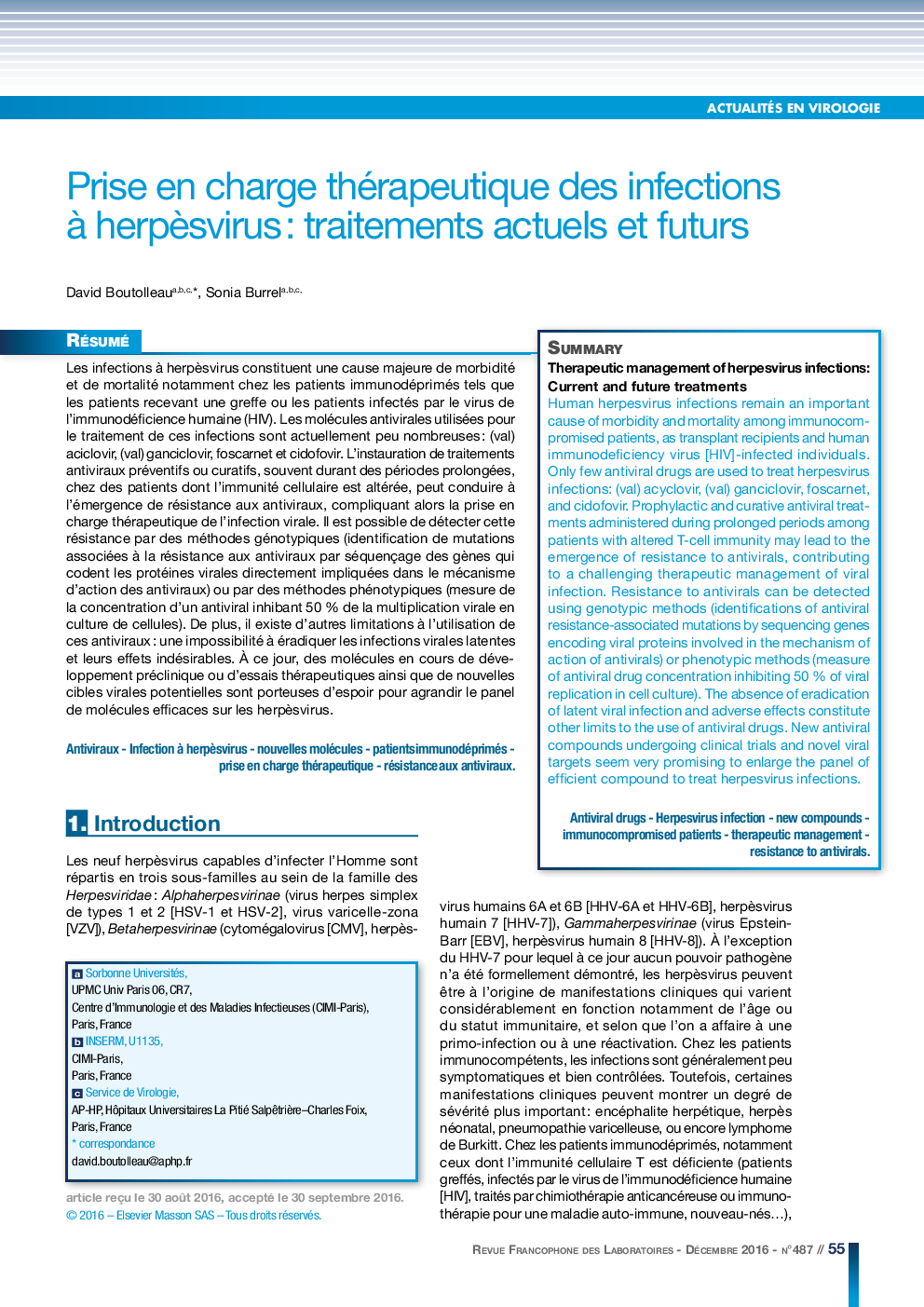| Article ID | Journal | Published Year | Pages | File Type |
|---|---|---|---|---|
| 7645820 | Revue Francophone des Laboratoires | 2016 | 10 Pages |
Abstract
Human herpesvirus infections remain an important cause of morbidity and mortality among immunocompromised patients, as transplant recipients and human immunodeficiency virus [HIV]-infected individuals. Only few antiviral drugs are used to treat herpesvirus infections: (val) acyclovir, (val) ganciclovir, foscarnet, and cidofovir. Prophylactic and curative antiviral treatments administered during prolonged periods among patients with altered T-cell immunity may lead to the emergence of resistance to antivirals, contributing to a challenging therapeutic management of viral infection. Resistance to antivirals can be detected using genotypic methods (identifications of antiviral resistance-associated mutations by sequencing genes encoding viral proteins involved in the mechanism of action of antivirals) or phenotypic methods (measure of antiviral drug concentration inhibiting 50% of viral replication in cell culture). The absence of eradication of latent viral infection and adverse effects constitute other limits to the use of antiviral drugs. New antiviral compounds undergoing clinical trials and novel viral targets seem very promising to enlarge the panel of efficient compound to treat herpesvirus infections.
Keywords
Related Topics
Physical Sciences and Engineering
Chemistry
Analytical Chemistry
Authors
David Boutolleau, Sonia Burrel,
